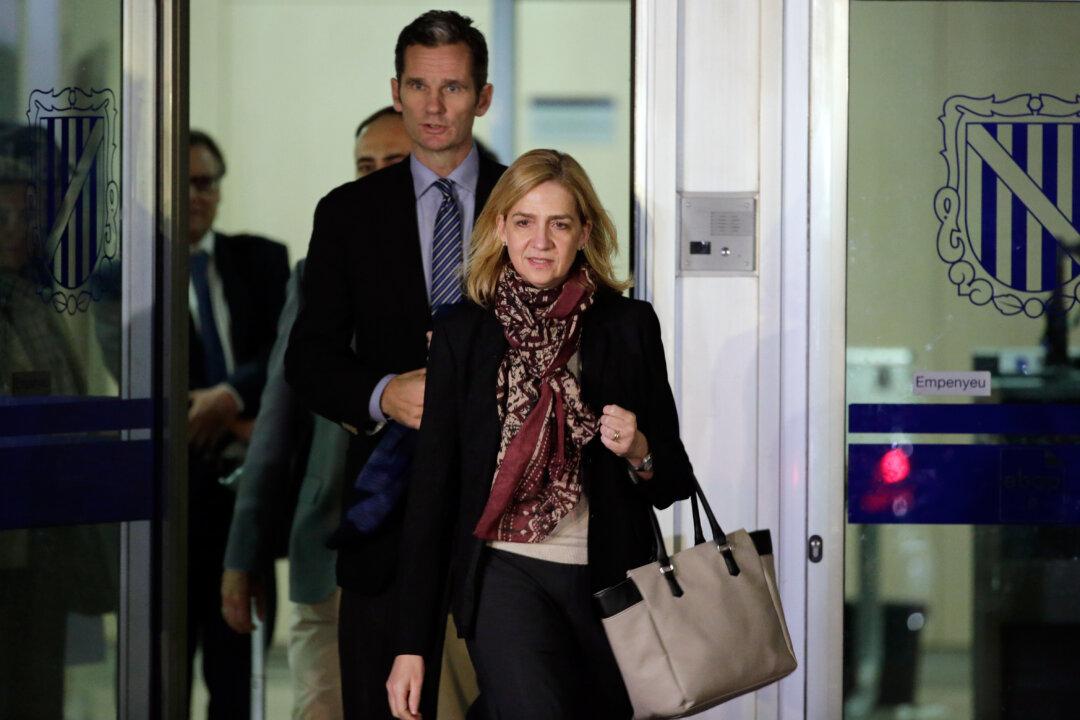PALMA DE MALLORCA, Spain—Spain’s Princess Cristina spent 12 hours in court Monday at the start of her landmark criminal case, confronting accusations of bankrolling a lavish lifestyle with funds her husband received from an alleged scheme to embezzle millions from public contracts for conferences and sporting events.
Cristina and her husband, Inaki Urdangarin, said nothing during the opening of their trial as their lawyers and attorneys for 16 additional defendants argued why their clients should have charges dropped and made requests about evidence and witnesses for a trial expected to last six months.
One lawyer asked to call Spain’s current and former kings as witnesses and another accused him of trying to turn the trial into a reality show. The judge ended the proceedings by saying the trial would resume in February—when a final decision will be made as to whether Cristina will remain among the defendants or not.
The 50-year-old Cristina, the sister of King Felipe VI, faces two counts of tax fraud, carrying a maximum prison sentence of eight years, for allegedly failing to declare taxes on personal expenses paid by a real estate company she owned with Urdangarin, an Olympic handball medalist turned businessman.
Her lawyer, Jesus Maria Silva, was joined by a prosecutor and a state attorney representing Spanish tax authorities in saying the charges against Cristina should be thrown out because government officials agreed she committed no crimes and should face at most an administrative fine for tax evasion.





